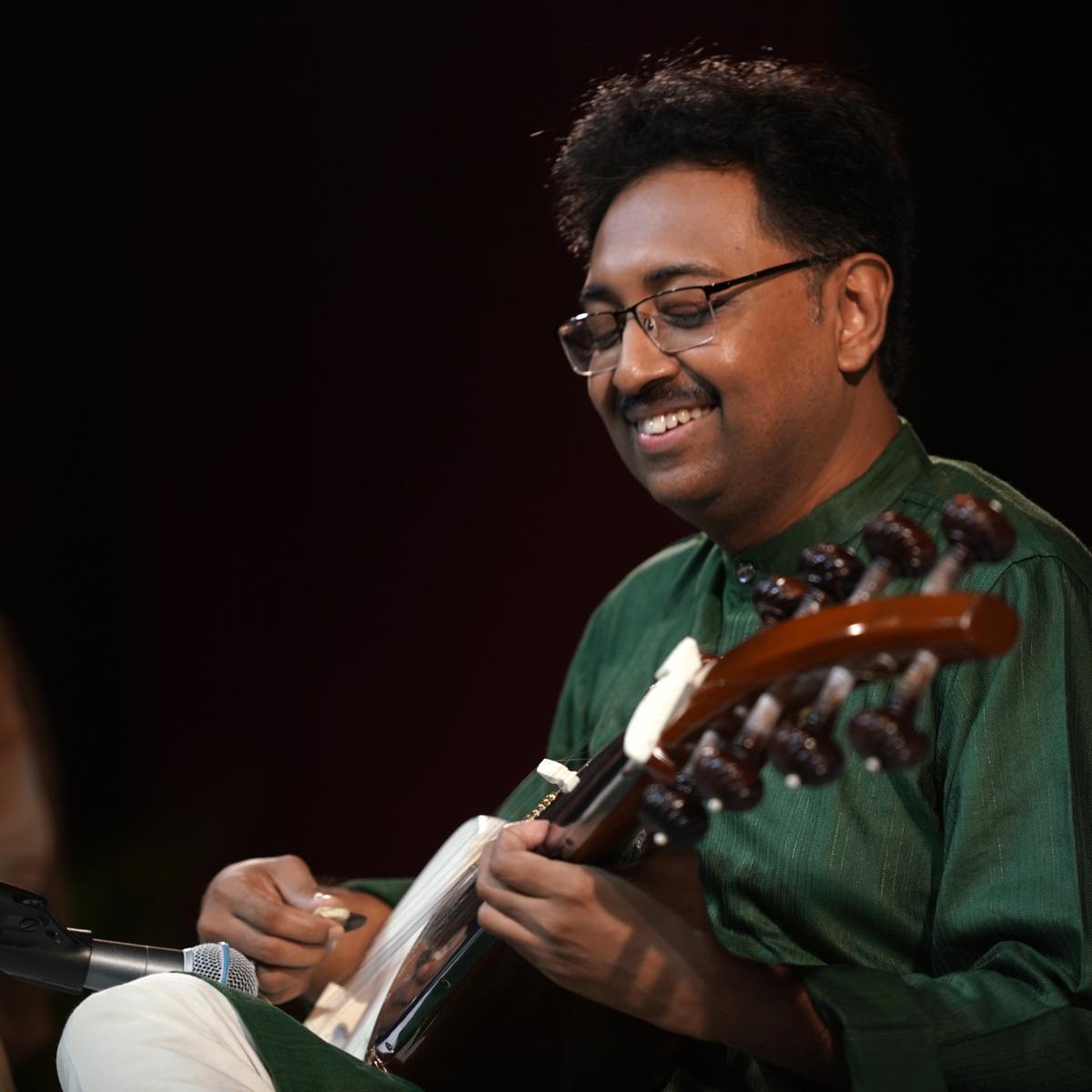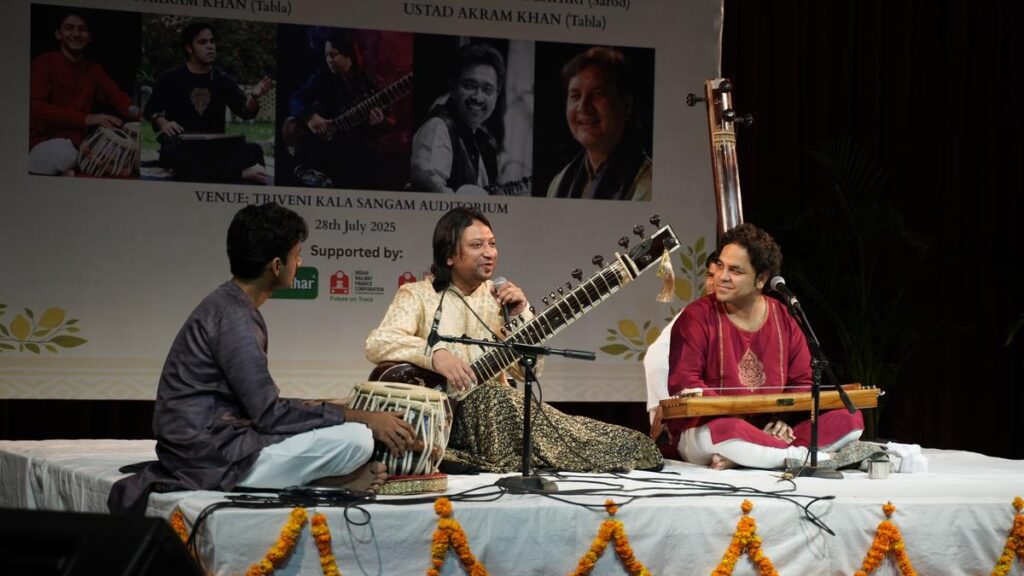970x125
Arshad Ali Khan, Shakir Khan and Zargham Akram Khan
| Photo Credit: Rakesh Bhardwaj
970x125
It is heartening to see musicians turning organisers as their artistry comes through in the curation. So it was with the Malhar Utsav held recently in Delhi. It was put together by tabla exponent Ustad Akram Khan’s Tabla Academy of Ajrara Gharana.
The first concert was a jugalbandi between Imdadkhani gharana sitarist Shakir Khan, and Kirana gharana vocalist Arshad Ali Khan. They were accompanied on the tabla by 22-year-old Zargham Akram Khan, scion of the Ajrara gharana.
Shakir and Arshad have collaborated on stage before, though this was their first performance in Delhi. Shakir is the son of sitar maestro Ustad Shahid Parvez, with an impressive eight generational musical legacy. Arshad is a child prodigy, belonging to the family of the founders of the Kirana gharana, Ustad Abdul Karim Khan and Ustad Abdul Wahid Khan. Though the camaraderie was visible, this performance had both artistes showcasing their taalim and riyaaz. The concert was not about musical one-upmanship, the two artistes made it exciting by matching each other’s prowess.
They chose the raag of the season, Mian Malhar. Shakir the older and senior started the concert with his gharana’s customary flourish; Arshad responded by going straight to the ‘sa’ in the lower octave, a difficult feat for any vocalist before the voice warms up. They rendered a brief alap as per the instrumental tradition, then moved onto the composition. The concert was short, under 60 minutes, but every minute was used well.
The composition was a traditional vocal bandish on Mughal emperor Mohammed Shah Rangile. Arshad’s guru Ustad Mashrur Ali Khan is well-known for his treasure trove of rare old bandish. Shakir held his own, not needing the prop of the evocative lyrics to make his point, musically. The ‘choot’ taans that Shakir effortlessly played, in lightening speed, were stunning. These were matched by Arshad’s long and intricate taans in three octaves. Zarkham on the tabla was not over-awed by his senior co artistes. His sangat was mature and most appropriate. The concluding tarana again was an old composition with a beautiful ‘antara’, which sadly Arshad sang only once, probably due to time constraints.

Abhisek Lahiri on the sarod
| Photo Credit:
Special Arrangement
Striking the right note
Abhisek Lahiri on the sarod is another talented young artiste. Having learnt from his father Alok Lahiri, he is apparently trained in the sarod’s three traditions — Maihar, Shahjahanpur Senia and Bangash.
Starting with raag Megh, the original raag of the monsoons, which predates Malhar, Abhisek created a serene ambience. His ‘jor’ was in the dhrupad style, his ‘jhala’ extensive, crystal clear and immensely satisfying. It was a pleasure to hear a solid performer who not once resorted to gimmicks to attract audience’s attention.
Switching to raag Surdasi Malhar, Abhisek was joined on the tabla by Ustad Akram Khan. Surdasi Malhar has a distinct, concise character. The Jhaptaal gat was composed by Abhisek’s father, with an unusual pick up of the ‘mukhda’ from the 8th beat; during his solo piece. Akram too ended on the mukhda instead of ‘sam’.
The ‘sawaal jawaab’ between the two was refreshing. One admired Abhisek for the control over the instrument, and his effortless layakaari. His artistry was a reminder of the music of an earlier era.
Published – August 13, 2025 06:41 pm IST
970x125

